Should Ukraine boycott the 2018 FIFA World Cup?
Should Ukraine boycott the 2018 FIFA World Cup? Following Russia’s occupation of Crimea and the invasion of Donbas, can Ukraine really send a team to the 2018 FIFA World Cup in Russia? Originally published - https://donetskway.wordpress.com/2016/08/31/should-ukraine-boycott-the-2018-world-cup/

Should Ukraine boycott the 2018 FIFA World Cup?
Ukraine’s Paralympians staged a protest in 2014
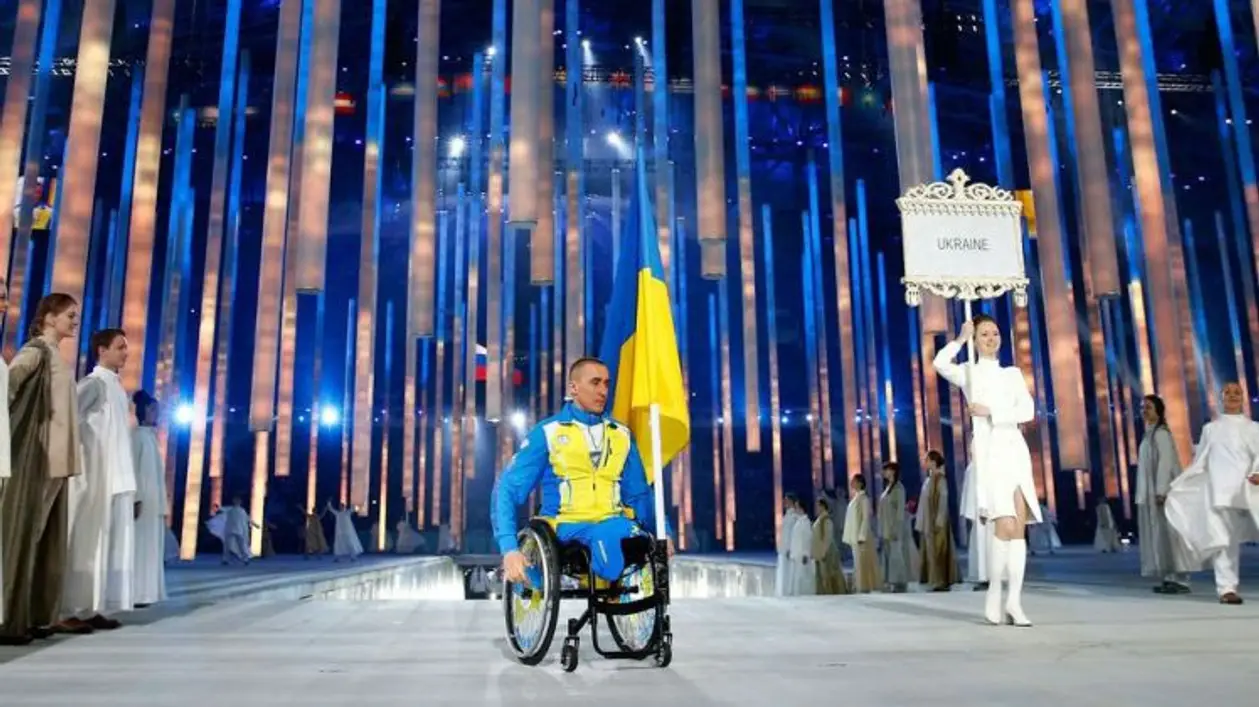
On the 7th March 2014, Mykailo Tkachenko wheeled himself out alone, with the Ukrainian flag at the opening ceremony of the Winter Paralympics in Sochi. Ukrainian athletes had decided to stage a symbolic protest after Russian troops had invaded and seized control of the Ukrainian peninsula of Crimea. The Ukrainian Paralympic Team had decided against a boycott of the games despite the unravelling situation. The head of Ukraine’s National Paralympic Committee, Valeriy Suskevcyh, stated that the team would remain in Sochi, so long as the situation remained stable, but if it escalated, the team would go home. Ukraine did not boycott the games, but by the closing ceremony a sham referendum on the future of Crimea had been run by the Kremlin, on Ukrainian land. Weeks later, Russia sparked unrest in the Donbas region of Ukraine, eventually sending in troops and weaponry to start a full scale war in Ukraine, which continues to this day and has cost the lives of over ten thousand people.
Next week, the qualification campaign for the 2018 FIFA World Cup begins and the tournament will be held in Russia. With the continuing conflict showing no signs of reaching a conclusion and Russian troops not withdrawing from Donbas, let alone Crimea, can Ukraine really send a team to compete at the 2018 FIFA World Cup?
A Ukrainian appearance at the World Cup in Russia will be a case of “continue as normal”, presenting a normalisation of ties between Ukraine and Russia and an acceptance of what has happened. Ukraine cannot allow a situation where it is acceptable for Russia to have its armed forces on the ground in Eastern Ukraine and the continued occupation of Crimea. Therefore, it is incomprehensible for Ukraine to send a team to the 2018 FIFA World Cup in Russia.
Ukrainian President, Petro Poroshenko, has spoken openly about a boycott of the 2018 FIFA World Cup in Russia
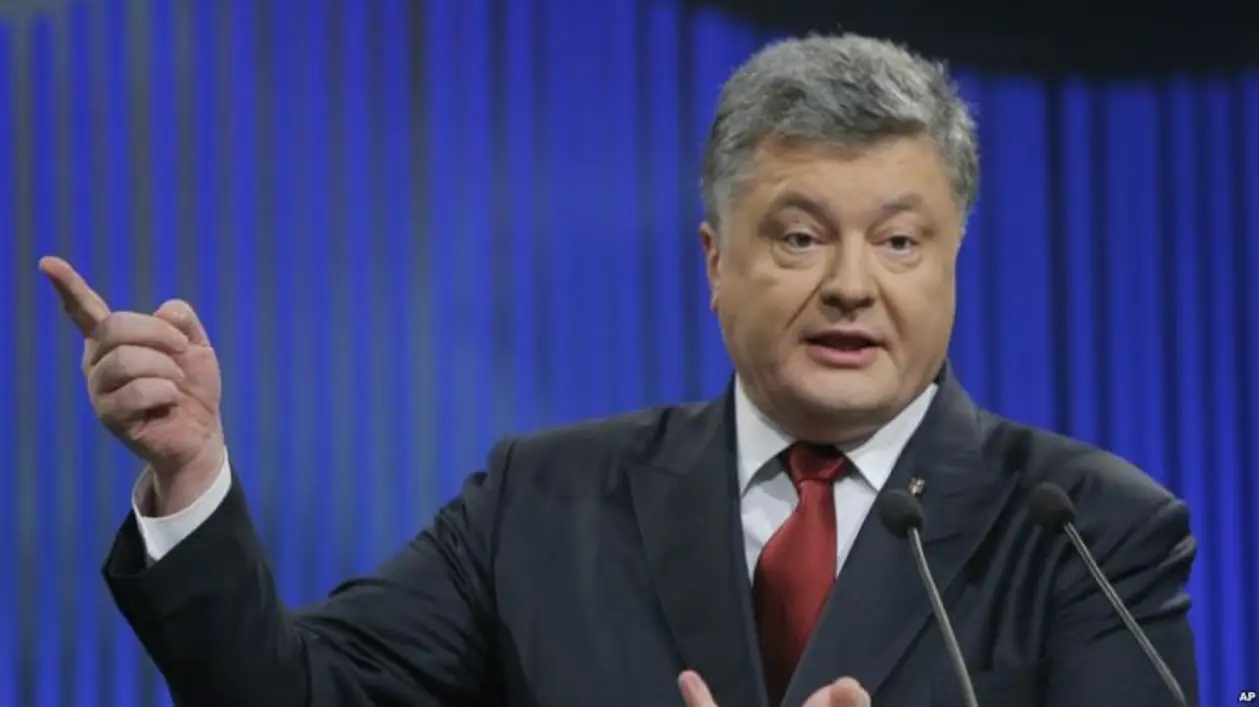
Ukraine’s President Petro Poroshenko has openly spoken of a boycott of the tournament. “As long as there are Russian troops in Ukraine I think a World Cup in that country is unthinkable”. There are still Russian soldiers on the ground in Ukraine, but his appeal for a mass boycott appears to have fallen on deaf ears. There have since been with further calls for the tournament to be stripped from Russia and played elsewhere.
Only in the past couple of weeks, Russia has threatened to suspend diplomatic ties with Ukraine over a flare up of tensions over Crimea. Despite it being a surprise to see that there still are diplomatic relations between the two warring states, it shows that the situation is highly volatile and nowhere near any resolution. A business as usual approach with Ukraine competing in 2018 is a highly inappropriate move, with such tension on going.
Andriy Pavelko will not rush a decision
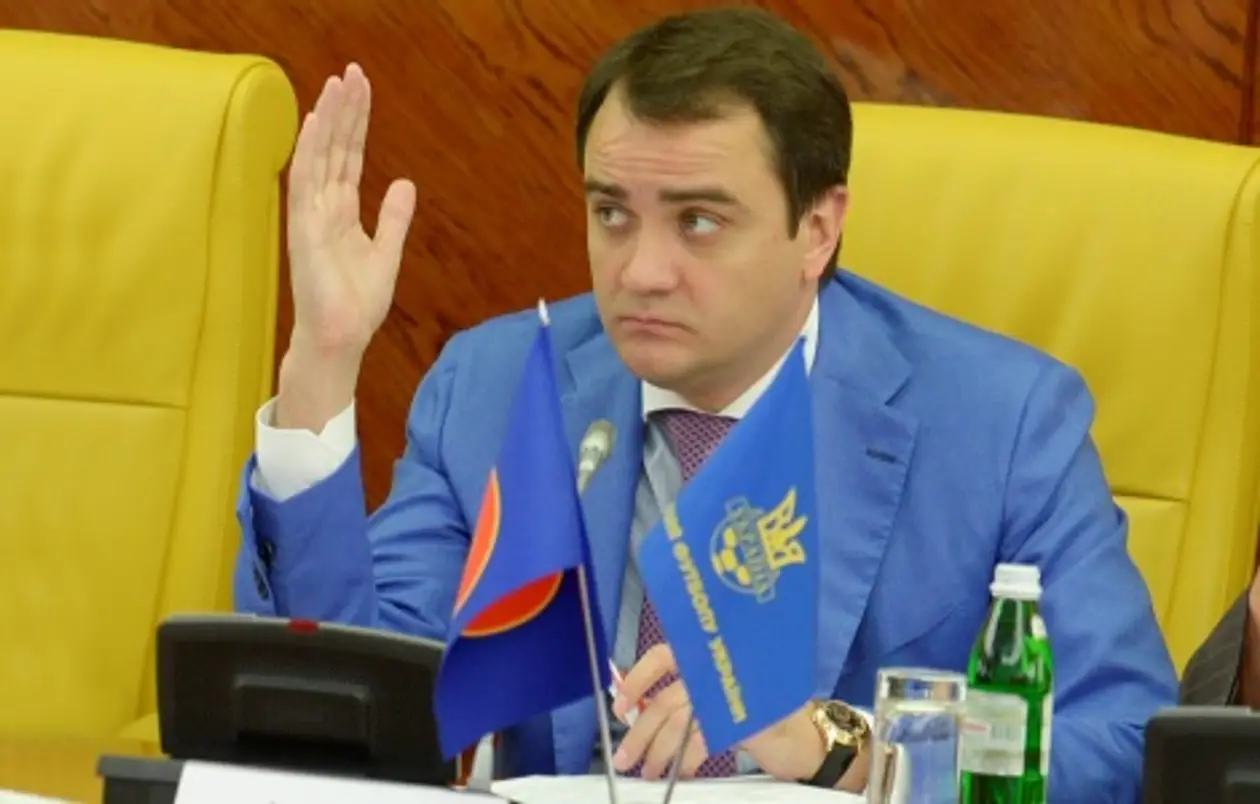
The Football Federation of Ukraine (FFU) have committed to playing in the qualification stages of the competition, with no official comment as to what happens should Ukraine qualify. There appears to be a general consensus of “let’s see what happens”, with Andriy Pavelko (President of the FFU) quoted as saying “We will develop a plan of action as required, but let’s not jump and let’s wait”. There is of course no guarantee that Ukraine will qualify for the World Cup as they have been drawn in a difficult group containing four Euro 2016 participants. Turkey and Croatia are regular qualifiers for major footballing events and will fancy their chances, while Iceland arguably stole the show with their amazing run to the quarter finals including the second round victory over England. Ukraine have also only qualified for the World Cup once (Germany 2006) as an independent nation, despite reaching the World Cup Qualification Play-Off stages on four occasions (1998, 2002, 2010 & 2014). Finland and Kosovo will also be no rollovers and will have the ability to take points and upset the more favoured nations, despite maybe not harbouring realistic hopes of qualification. It is also a period of change for Ukraine, with Andriy Shevchenko installed as the new manager and several first team players likely being replaced, after the dismal showing at Euro 2016.
There hasn’t been a boycott of the finals tournament of a World Cup in modern times. There was a full African boycott, from the qualification stages in 1966, the Soviet Union refused to travel to Chile in 1974 during the inter-continental qualifier and lost its place, Chile were disqualified in 1990, Yugoslavia expelled by the UN in 1994 but in recent years there has been no boycott. Such action by Ukraine (with or without support of other nations) would be unprecedented.
When Togo withdrew from the from the 2010 African Cup of Nations, following the horrific terrorist attack on their team coach which killed three people and injured a dozen more, instead of sympathy, the African Football Confederation banned Togo from the next two editions of the African Cup of Nations and fined them. This decision was later reversed, but it shows there will be little sympathy for Ukraine from the footballing authorities should they decide to withdraw.
FIFA have a dedicated section on withdrawal from the World Cup which state the consequences and possible sanctions in theRegulations for the 2018 FIFA World Cup in Russia. Section 6 of the general provisions states the initial sanctions, which includes fines, but section 6.4 states that further action can be taken in addition to the fines, including exclusions from future competition.
6.4 of the Regulations for the 2018 FIFA World Cup

FIFA also do not take lightly to political interference in football and have already banned several nations for such incidents. If FIFA deem that a Ukrainian boycott is politically motivated, which it most likely would, particularly when considering President Poroshenko’s previous comments, then they would come down hard on Ukraine. Article 17.1 of FIFA Statute states that members shall manage their affairs independently and with no influence from third parties, and FIFA have enforced this rule on numerous occasions in the recent past.
There is the potential that a tournament boycott will significantly hurt Ukrainian footballing development for years to come, should FIFA impose the toughest sanctions. Despite the alarm of this, there has already been much more considerable damage on the Ukrainian nation than anything FIFA could possibly do, but it is something which should not be lightly dismissed. A boycott would mean a generation of Ukrainian footballers missing out on the opportunity to perform on the grandest stage of them all. The 2018 World Cup may provide the best opportunity for the likes of Andriy Yarmolenko and Yevhen Konoplyanka to play at a World Cup finals and the boycott would take this away from them and have an effect in future years. This was an argument that was considered during the 2014 Winter Paralympic Games – the Ukrainian athletes had trained for years to compete at the games and it would be unfair for them to withdraw at the last moment, despite the situation on the ground in Ukraine. When considering the sacrifices made by Ukrainian soldiers on the front lines and the countless civilians who have suffered horrendously and have had been made refugees in their own state, this places realism on the situation for footballers.
During the 2016 winter transfer window, Ukraine international forward Yevhen Seleznyov left Dnipro and joined Russian club FC Kuban Krasnodar. The striker received unprecedent criticism and offered the reasoning that he had to "feed his family". It is likely that any footballers, who want to play on the World’s biggest footballing stage, will get little sympathy from the Ukrainian public, considering the bigger picture.
The separation of sport and politics is a noble idea at best
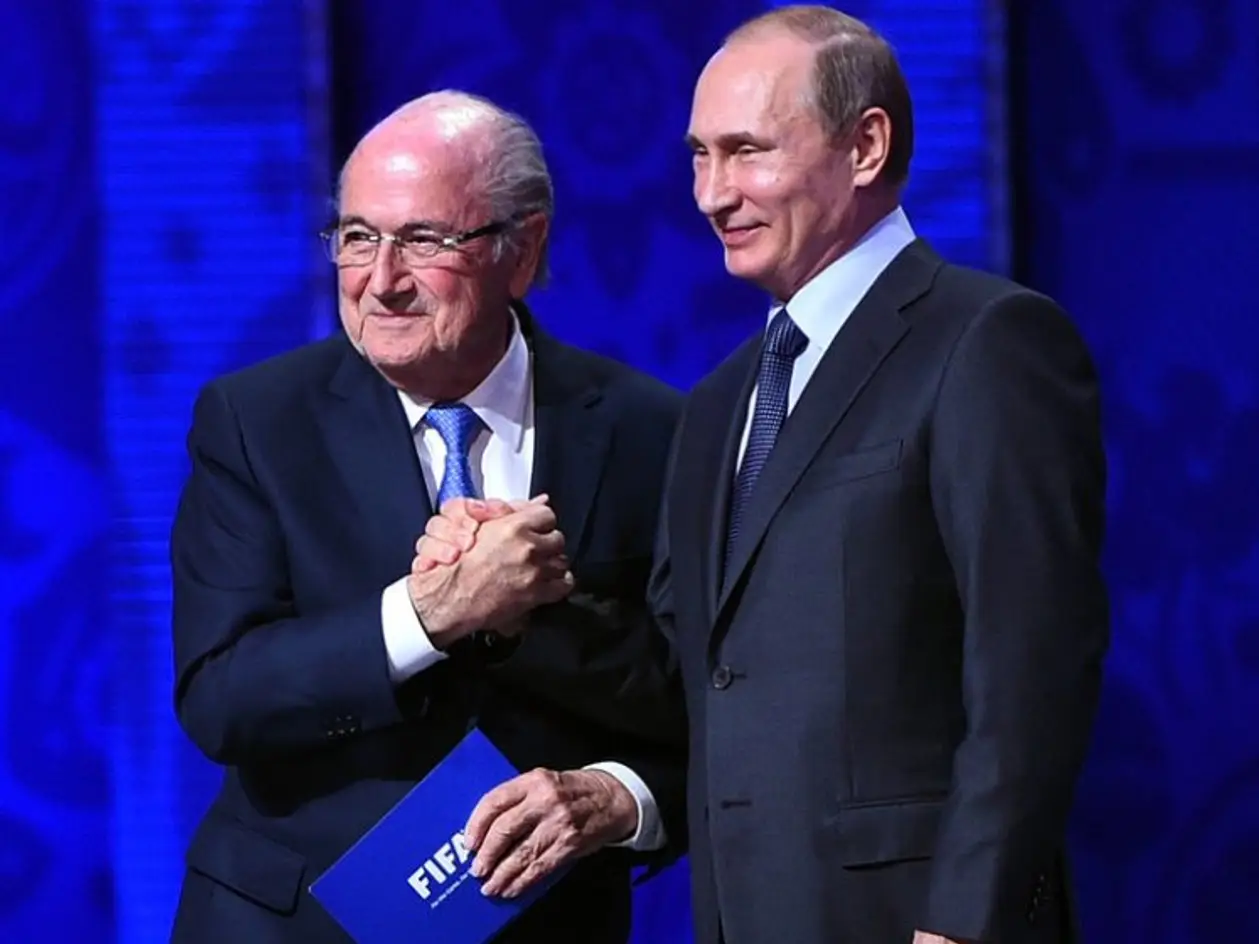
The idea of separation of sports and politics is a noble one at best, but unfortunately in reality, the two are intrinsically linked. FIFA has become stuck in the middle of the Ukraine/Russia conflict, with maps of Russia including Crimea being a hot topic. In October 2014 at a promotional launch of the tournament, FIFA were forced to apologise and remove a promotional video as it included Crimea as part of Ukraine. FIFA has followed the lead of UEFA, which has stated that Crimean football will not be accepted as part of the Russian Football Union. UEFA have separated Ukrainian and Russian sides in European competition since the start of the conflict in 2014. It was ruled that due to the current political situation, there are concerns about safety and security. As the situation has not changed, this ruling remains in place. Thus, if it is not safe for Ukrainian or Russian clubs to meet in European competition, will it be safe for Ukraine to travel and play in Russia?
As at the Sochi Games, Russian President Vladimir Putin will use the 2018 World Cup to serve his propaganda of a great Russia and an opportunity to showcase Russia to the world. Of course, he would not be the only leader of government to do this, as it is certainly an opportunity to showcase the country. But the Kremlin’s methods and tactics in recent years have drawn widespread international criticism and for Ukraine to take its place in this propaganda tool would be wholly inappropriate and irresponsible, after it has suffered so much, because of the Kremlins actions.
There have also been wider concerns about the 2018 FIFA World Cup being hosted in Russia. The FIFA corruption scandal which implicated Russia and their bid for the World Cup saw a clamour of politicians and journalist calling for a boycott of the tournament and the 2022 edition in Qatar. These clamours have seemingly died down since the suspending of the disgraced former FIFA President Sepp Blatter and other members of the FIFA executive committee. With the tournament slowing bearing down on the world and there is an inevitability that it will go ahead as planned.
There are concerns from minority groups about the rise of racism and extremism in the country, while the LGBT community continues to be oppressed in Russia. One issue that raised its ugly head in France during Euro 2016 was hooliganism. Russian fans were by no means the only hooligans to cause trouble at the Championships, I can vouch for that myself as a group of German Hooligans attacked us, while we were enjoying the build up to Ukraine’s opening game of Euro 2016 in Lille. The Russian’s however were the most notorious, causing and threatening to cause trouble on several occasions, leading to a major crackdown against them.
The response to the hooligan violence in Russia has attracted a lot of criticism. While the violent actions of the fans were quickly denounced by most, Russia media and indeed members of the Russian Parliament and Football Union refused to criticise their supporters. Russian attitudes to hooliganism are archaic and the problems have not been addressed, leading many to worry over the safety of fans at the 2018 Championships.
Unless the authorities in Russia take pre-emptive action ahead of the 2018 tournament, hooliganism will raise its head again and the consequences may be worse. Many regular travelling fans are already put off heading to Russia as a result of this and the security of fans is a major concern. BBC Radio Five Live commentator Alan Green has already said he will not atten the World Cup in Russia, citing his experiences and the atmosphere in the country on his previous visits. Although his decision was made before Euro 2016, the fan violence and hooligan culture in Russia will no doubt have further justified his choice. I have travelled to every major tournament Ukraine have played at, but I will not be heading to Russia in 2018.
There have been numerous videos and stories on social media, showing how Ukrainian or Ukrainian supporting people in Russia have been arrested or questioned by security services. Will these security services protect Ukrainian fans in Russia and against Russian hooligans? I remain to be convinced. Of course, ahead of every major tournament there are concerns that are blown out of proportion, as we saw with the infamous "Stadiums of Hate" BBC documentary ahead of Euro 2012 in Ukraine and Poland.
Admittedly, there are hundreds of thousands (if not millions) of Ukrainians who live and work in Russia and they do not suffer from such oppressive measures and no doubt many will have integrated into society with many people not even recognising that they are in fact Ukrainian. There is however, a significant difference between Ukrainians working in Russia and those who would be visiting for the tournament. Travelling fans will be showcasing their Ukrainian identity and will be expressing higher levels of patriotism. In an already tense situation, there would only need to be a small spark to trigger a serious incident.
The World Cup is the pinnacle of football and is only rivalled by the Olympics in global sporting prestige and worldwide audience. It is an event every country wants to be a part and according to FIFA over 3.2 billion people tuned in to watch the 2014 World Cup. To boycott a World Cup and sacrifice your place at the elite table and the possibility of further ramifications as a result of such action, is a major step, however it is a step that, in case of qualification, Ukraine should take.
Ukraine should not compete for the World Cup trophy in Russia
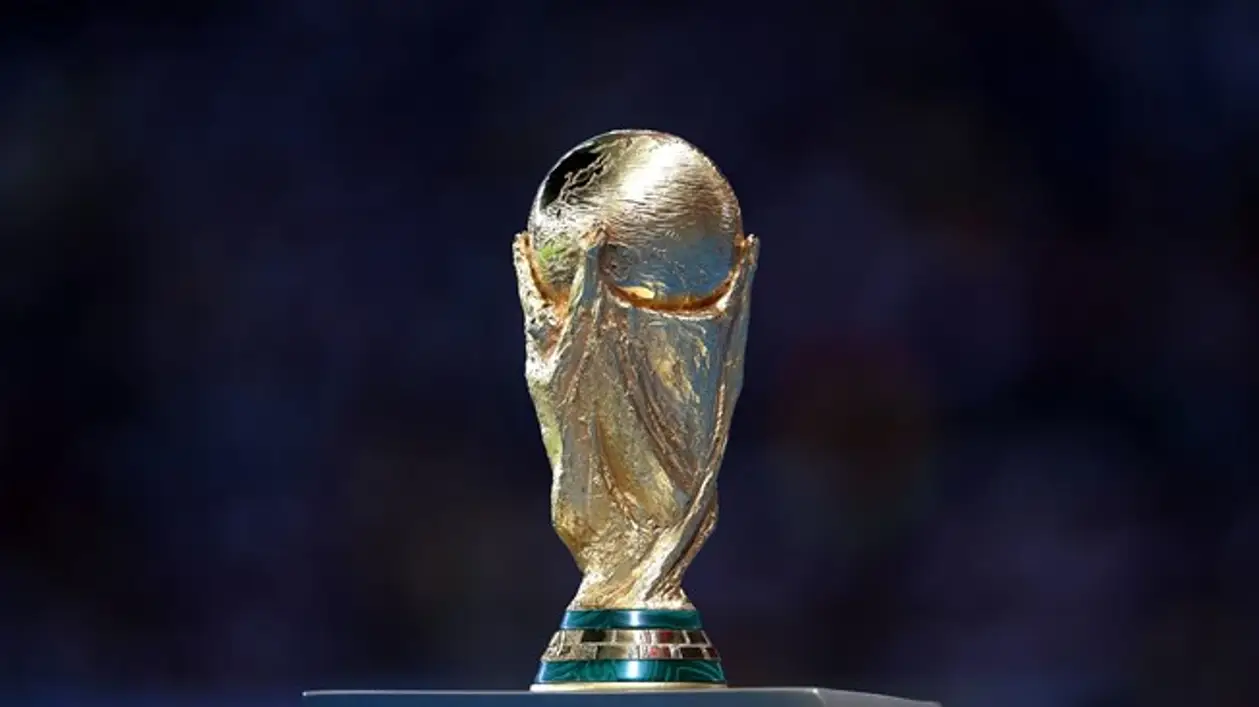
Ukrainian participation in the 2018 World Cup will be a step towards business as usual and acceptance of the current situation. Russia has invaded and annexed Crimea and has its forces occupying the Donbas, with death and destruction continuing every day. There will be huge consequences for Ukrainian football for years to come as a result of a potential boycott, but there have already been even bigger consequences for the Ukrainian state and the lives of thousands of soldiers and citizens who have perished as a result of Russian actions. A Ukrainian boycott of the 2018 World Cup will be a symbol that Ukraine will not roll over and accept the situation where Russia can invade its lands and kill it citizens and expect a normalisation of the situation.
Article by Petro Chymera, Vice-President of the UK Ukrainian Sports Supporters Club and Co-founder of Donetsk Way and the Viktor Leonenko Hall of Fame. Follow Petro on twitter – @PMChymera89 & @DonetskWay2012
